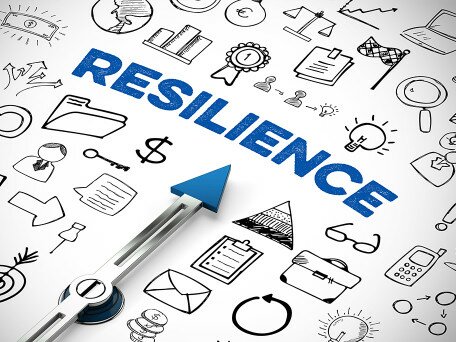Principal Resilience and its Influential Occupational Drivers in Hong Kong: Developing and Validating the Principal Resilience Inventory
- Project Scheme:
- General Research Fund
- Project Year:
- 2022/2023
- Project Leader:
- Dr CHEN, Junjun
- (Department of Education Policy and Leadership)

The work of school principals has always been complex and challenging and has certainly become even more so during and after the COVID-19 pandemic (Chen & Walker, 2021; Harris & Jones, 2020). This phenomenon has inevitably threatened principal well-being and effectiveness (Pollock, Wang & Mahfouz, 2020; Riley, See, Marsh & Dicke, 2021).
Principal resilience has therefore become a pressing line of research as principals often struggle to cope not only with professional challenges and uncertainties around building a successful school but also with their own and their school wellbeing (Day & Gu, 2014; Patterson, Goens & Reed, 2013; Wells & Klocko, 2018). This issue is undoubtedly relevant for Hong Kong school principals currently experiencing unprecedented professional dilemmas stemming from political, social, and academic problems and suffering from well-being related symptoms (Chen, Walker, Riley, & Chui, 2020).
In addition, the notion of ‘principal first’ has recently been placed on the agenda to cultivate principal resilience, thereby establishing a school resilience cascade (Chen, 2021; Masten & Cicchetti, 2016). That is, principals should develop their resilience first so that they can substantially promote teacher resilience, which in turn fosters student resilience aiming for school wellness and success. Under such circumstances, it is essential to better understand principal resilience and how job resources and demands affect their resilience to help them care for themselves and whole-school wellness as they lead their school toward success (Reed & Reedman, 2020).
Moreover, during this process, how job resources and demands interact with each other requires clarifications so that principals can better utilise available resources, primarily when job demands increase - which reflects the current situation facing school principals. However, the principal resilience literature is still in its infancy. These aspects have not been investigated either in Hong Kong or internationally. Based on a pilot study and a systematic review on principal resilience (Chen & Li, under preparation), the main aim of this project is to investigate principal resilience and how salient job drivers influence this resilience in Hong Kong. Specifically, this study aims to
- develop and validate a Principal Resilience Inventory;
- investigate the states of principal resilience;
- identify what job resources, job demands and interplays affect principal resilience; and
- explore how these job resources, job demands and interplays affect principal resilience.
To achieve these aims, the project will employ an exploratory sequential mixed-methods design with four studies located in qualitative and quantitative strands. The qualitative strand consists of an interview study with a sample of 24 Hong Kong principals and a 3-panel interview study in order to develop the items and dimensions of the Principal Resilience Inventory and identify the impact of salient job resources and demands and their interactions on principal resilience. The quantitative strand contains two survey studies with two different groups of principals (50~100 and 300~350) to validate the Principal Resilience Inventory and explore the impact of job resources and demands and their interactions on principal resilience. This project will provide empirical insights to advance knowledge of principal resilience by establishing an authentic conceptual linkage between salient job resources and demands and their interactions with principal resilience.
This result will enable principals to better utilise their resilience to negotiate with available occupational resources and to navigate everyday challenges and adversities to optimise individual and school wellness and success. Through a robust validation procedure, this project will also produce a culturally-relevant, multi-dimensional Principal Resilience Inventory, that can potentially accelerate a balanced investigation of principal resilience through diverse research methods. Practically, the emphasis on salient job resources and demands and their interaction effect is solution-focused, as most of them are malleable and amenable to future resilience-building intervention efforts in order to cultivate resilient principals and then a resilient school through the cascade effect. The findings of this project can be also used to craft effective policies and practices for principal preparation, selection, and standardisation to enhance principal resilience in Hong Kong and help to enhance human capital building in Hong Kong society. These will eventually provide implications for the whole region and beyond.








